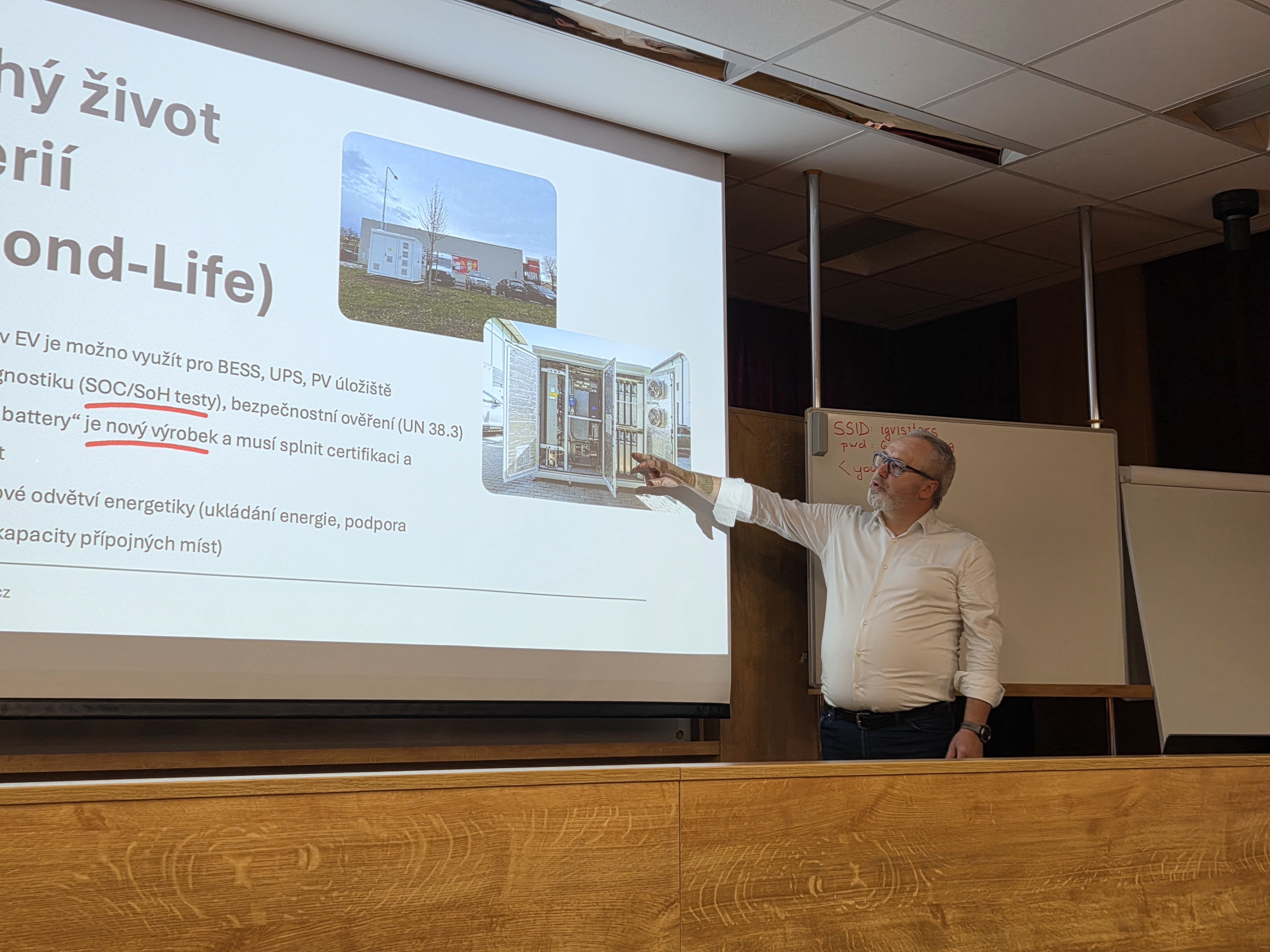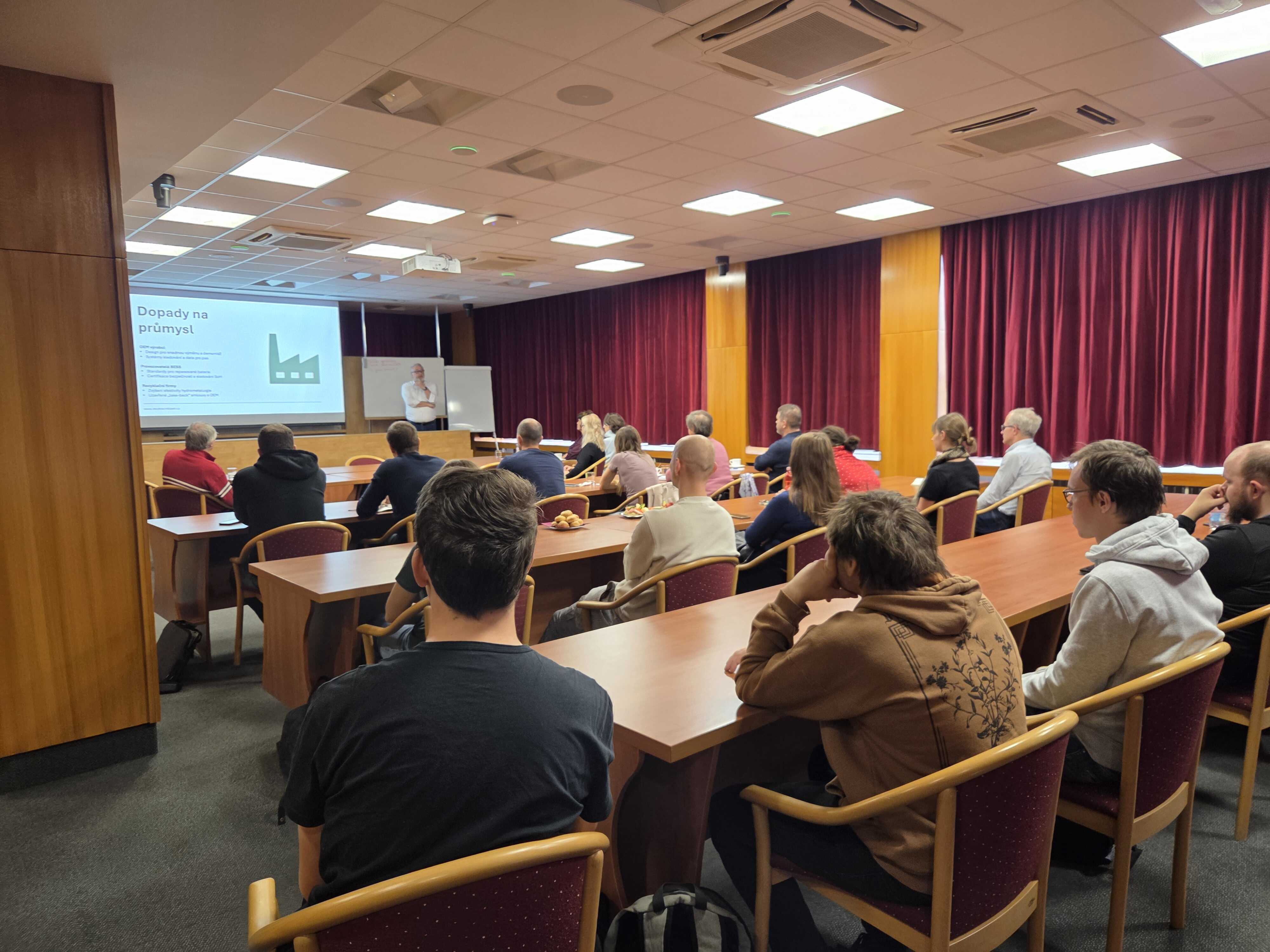The event took place within the framework of the OP JAK MEET project, carried out at the Nanotechnology Centre (CNT), CEET, VSB–Technical University of Ostrava. The meeting was hosted by the Institute of Geonics of the Czech Academy of Sciences, one of the project’s partner institutions. The keynote speaker, Stanislav Cingroš, founder of the Recycling Cluster Association, presented current goals and trends in battery recycling, including emerging opportunities for their “second life.” This refers to the reuse of battery modules in less demanding applications, such as energy storage from renewable sources in households or small-scale solar power plants.

“Setting the right conditions for recycling is crucial now, as the entire battery recycling industry is still in its early stages,” noted Gražyna Simha Martynková, the project’s principal investigator.
The lecture was followed by a lively discussion with colleagues from the Faculty of Materials Science and Technology, the Faculty of Mechanical Engineering at VSB–TUO, and other guests. Participants exchanged perspectives on various approaches to recycling, new development directions, and future trends in sustainable battery management. Young researchers and students were also actively involved, contributing fresh insights from the next generation of scientists and engineers.
The issue remains increasingly urgent, as a significant share of used lithium-ion batteries in Europe still ends up outside the recycling process, despite containing valuable raw materials such as lithium, graphite, cobalt, and nickel. The new European Battery Regulation (2023) therefore mandates the recycling of such batteries and the use of recycled materials in the production of new cells from 2030 onwards.

The event brought numerous inspiring insights and opened up new opportunities for collaboration between research partners and industry representatives.